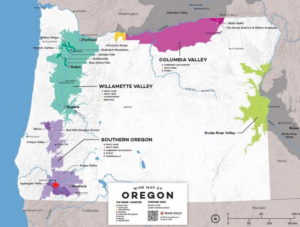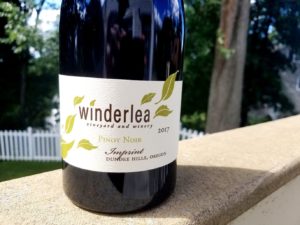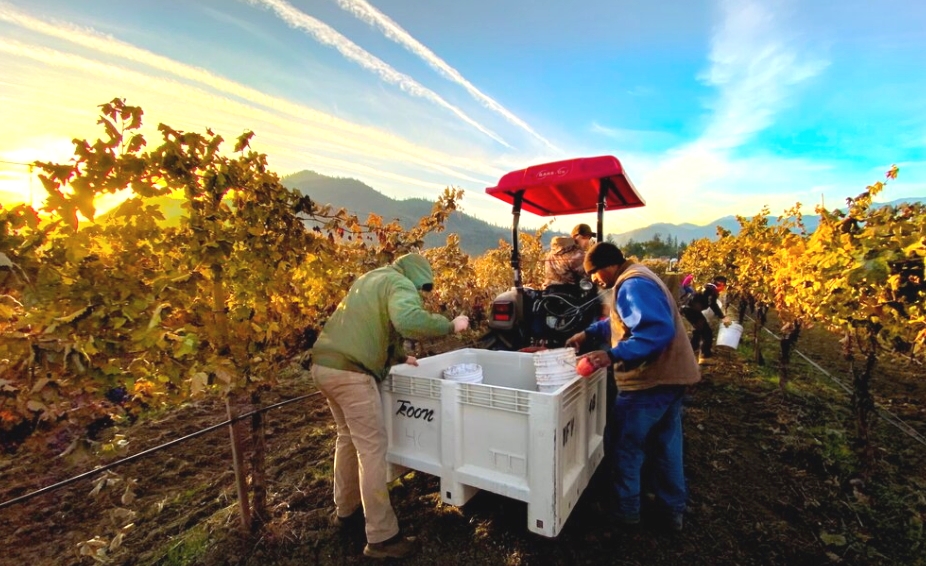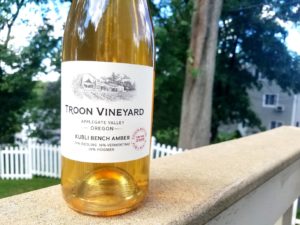Oregon Biodynamic Wine in the Spotlight: Stunning Examples from Troon Vineyard and Winderlea Vineyards & Winery
Similar to the way twenty-five years ago you probably didn’t know you preferred organic vegetables, you probably don’t know you prefer biodynamic wine yet.
And that’s understandable.
What is Biodynamic Wine?
After all, what is biodynamic wine, and how is it different from organic wine?
In simple, TLDR terms, organic wine is wine that is produced without the use of synthetic pesticides.
Biodynamic wine is wine that is produced in a way that extends organic principles beyond the vineyard through to the winemaking process employing natural yeasts and forbidding the addition of sulfites, tannin, acidity and other chemical adjustments.
Biodynamic wine production is guided by the lunar cycle and takes into account the entire ecosystem of wine production with the goal of creating a self-sustaining system of agriculture and winemaking.
An Evening with Two Biodynamic Wineries
While coronavirus may have kept us wine enthusiasts from gathering in person in Oregon this August for the 2020 Wine Media Conference, it didn’t keep us from tasting and learning about wine.
I and a handful of wine writers attended a virtual tasting via zoom hosted by the Oregon Wine Board.
Oregon has the most biodynamic vineyards under acreage in the United States accounting for 52% of total vineyard acres in the U.S. that are Demeter-USA biodynamic certified.
This is an impressive showing from a state whose wine you still may not find in great quantity at your local wine store, even as there are more than 800 wineries within 21 AVAs in Oregon.
Two Takes on Biodynamic Wine from Applegate Valley and Dundee Hills

Caption: Oregon Biodynamic producers Troon Vineyard in Applegate Valley and Winderlea Vineyards & Winery in Dundee Hills.
Troon Vineyards and Winderlea Vineyards & Winery both produce biodynamic wine in their respective Oregon AVAs of Applegate Valley and Dundee Hills.
Troon Vineyard
Troon Vineyard is located in southern Oregon in the Applegate Valley AVA.
Applegate Valley has 20 wineries on 750 acres with two biodynamic wineries (including Troon) that occupy 10% of the land within the AVA.
Applegate Valley specializes in producing full-bodied fruit-forward Bordeaux and Rhône-style wines with a subtle minerality and plushness.
The AVA specializes in growing cabernet franc, cabernet sauvignon, chardonnay, merlot, tannat, riesling, syrah, tempranillo, vermentino and zinfandel.
Wines produced here tend to retain their natural acidity due to warm days and cool nights.
Craig Camp, General Manager of Troon Vineyard, shared a stunning example of Troon’s Kubli Bench Amber 2019 made in an orange-wine style from riesling, vermentino and viognier.
I’ve sampled many orange wines, including amphora wines from Georgia (country), and this is hands down the best, aromatically-led, orange wine I have ever had the pleasure to enjoy (see my detailed review in the link above).
According to Camp, “The key to making and orange is to farm it like a red wine.”
Red-wine crop production focuses on developing a grape’s phenolic character to produce wine with complexity.
Winderlea Vineyards & Winery
Winderlea Vineyards & Winery is located in the Dundee Hills AVA which is part of the larger Willamette Valley AVA.
Dundee Hills has 47 wineries on 2,225 acres.
The AVA specializes in producing pinot noir in cooler vintages with plummy, floral notes and pinot noir in warmer vintages with an earthy character.
The majority of wine production is focused on three grapes – pinot noir, chardonnay and pinot gris.

Photo Credit: Wine Casual, Winderlea Vineyard and Winery, Imprint Pinot Noir 2017, Dundee Hills, Oregon
Bill Sweat, Founder of Winderlea Vineyards & Winery, shared his biodynamic Imprint Pinot Noir 2017 which has old-world savoriness and complexity.
The small-batch, whole-cluster pinot noir is produced at the estate with very little technology.
Sweat notes, “I literally own a pump and a press that is powered by a garden hose” to make the wine.
He credits biodynamic farming practices to producing healthy fruit and clusters.
The Verdict on Biodynamic Wine
Biodynamic wine isn’t just laudable – it’s also delicious.
These two examples from Troon and Winderlea will make you want to seek out more wine from biodynamic producers.
Biodynamic wine tends to have more depth and complexity than organic and non-organic wine.
Let’s hope more wineries choose to go biodynamic and continue this palate-and-environmental-friendly trend.


